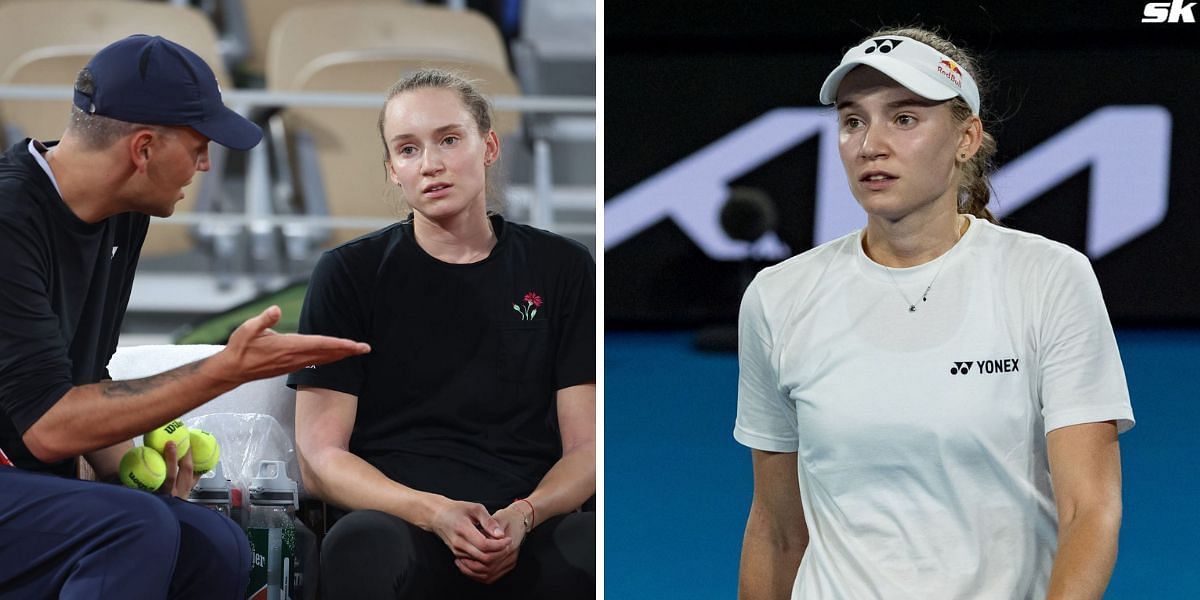
Olympic boxer Angela Carini apologizes to Imane Khelif, is ‘sad’ about gender controversy
Angela Carini of Italy doesn’t like how the conversation about Olympic women’s boxing has turned.
She was knocked out of her opening fight Thursday in 46 seconds, but told the Italian publication Gazzetta dello Sport that she felt sorry for the winner, Imane Khelif of Algeria, who has faced uncomfortable questions and speculation about her gender and medical status as part of a wave of debate online.
Carini was sad that she lost, ending her Olympic competition. She said she didn’t feel Khelif did anything wrong by beating her.
“All this controversy certainly made me sad, and I also felt sorry for my opponent, she had nothing to do with it and like me was only here to fight,” Carini said.
She added that she was not making a statement about Khelif’s presence in the 66-kilogram (146-pound) tournament by not shaking her hand after choosing to quit, which was unusual and jarring in a format with headgear and fights slated for three rounds of 3 minutes each.
“It was not intentional, in fact I apologize to her and to everyone,” Carini said. “I was angry, because my Games had already gone up in smoke. I have nothing against Khelif and on the contrary if I happened to meet her again I would give her a hug.”
The finish, officially ruled as an abandonment, ratcheted up discussion about whether Khelif and Lin Yu-ting of Taiwan should be competing after they were disqualified near the end of the world championships in 2023, folding itself into more widespread and fractious arguments about gender in sport.
The International Boxing Association (IBA), which does not run Olympic boxing because of a bitter dispute with the International Olympic Committee (IOC), said this week that tests found that Khelif and Lin had advantages over other women. But it did not specify what tests were used beyond saying they were not testosterone tests.
That fervor led to “misleading information” being spread about the athletes, the IOC said, adding that Khelif and Lin were properly cleared to compete in Paris using passports and other medical clearances, the same methods used to clear them at the Tokyo Games in 2021 and in numerous other international competitions.
“The question you have to ask yourself is: ‘Are these athletes women?’ The answer is yes, according to eligibility, according to their passports, according to their history,” IOC spokesman Mark Adams told reporters Friday said when asked if Olympic organizers should have been better prepared for the Paris boxing tournaments. “If we start acting on every issue, every allegation that comes up, then we start having the kind of witch hunts that we’re having now.”
Carini, who said previously that she had not objected to facing Khelif going into the fight, told Gazzetta dello Sport that she tried to isolate herself from the controversy. But when asked if she felt manipulated by those using the bout to argue about gender issues, she said: “That’s a question I don’t want to answer. I imagine that many people supported me because like me they believed in my Olympic dream, in my desire to win a medal for Dad, who is no longer with us. That’s all.”
Lin, the top-seeded fighter in the 57-kilogram (125-pound) division, fought a much less memorable opener on Friday, outboxing Sitora Turdibekova of Uzbekistan for three mostly unremarkable rounds.
Little of the controversy was visible in the ring. They touched gloves before the fight. Lin mostly kept Turdibekova at a distance, using her longer limbs and occasional jabs to score points among the five judges, with only one judge awarding Turdibekova a single round. Turdibekova had some moments, especially in the second round as she tried to work inside to force scrappier exchanges with shorter punches. But she knew — and everyone knew because of the open scoring shared during Olympic bouts — that she was losing at each break.
Carini, who said previously that she had not objected to facing Khelif going into the fight, told Gazzetta dello Sport that she tried to isolate herself from the controversy. But when asked if she felt manipulated by those using the bout to argue about gender issues, she said: “That’s a question I don’t want to answer. I imagine that many people supported me because like me they believed in my Olympic dream, in my desire to win a medal for Dad, who is no longer with us. That’s all.”

Lin, the top-seeded fighter in the 57-kilogram (125-pound) division, fought a much less memorable opener on Friday, outboxing Sitora Turdibekova of Uzbekistan for three mostly unremarkable rounds.
Little of the controversy was visible in the ring. They touched gloves before the fight. Lin mostly kept Turdibekova at a distance, using her longer limbs and occasional jabs to score points among the five judges, with only one judge awarding Turdibekova a single round. Turdibekova had some moments, especially in the second round as she tried to work inside to force scrappier exchanges with shorter punches. But she knew — and everyone knew because of the open scoring shared during Olympic bouts — that she was losing at each break.
Still, the fighters shook hands after removing their gloves. The decision was announced and the crowd cheered. Turdibekova wiped away tears. Lin celebrated like most boxers do, by holding a hand up in the air and acknowledging the spectators.
But little else about Olympic women’s boxing is straightforward right now. As Lin was in the ring and Khelif was preparing for her next opponent, Anna Luca Hamori of Hungary, Hamori was using the dispute like so many boxers do with controversies in the cutthroat game of promoting fights.
On Instagram, she shared numerous posts from users that cast her as the fighter to root for and that put down Khelif, positioning herself as a would-be hero for women’s sports.






